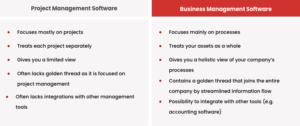AI solutions for small business can streamline operations and boost efficiency. They help in automating tasks and enhancing customer experiences.
Small businesses can greatly benefit from AI solutions. These technologies automate repetitive tasks, saving time and reducing human error. AI can optimize marketing strategies by analyzing data and predicting trends. Customer service also improves through chatbots and personalized interactions. Inventory management becomes more efficient with AI-driven forecasts.
Small businesses can make informed decisions based on real-time insights. AI tools are now more accessible and affordable, making them a viable option for even the smallest enterprises. By leveraging AI, small businesses can stay competitive and grow. Embracing AI solutions can lead to significant improvements in productivity and customer satisfaction.

Credit: www.designrush.com
Ai Benefits For Small Business
Small businesses are rapidly adopting AI solutions. These tools help them stay competitive and efficient. AI offers numerous benefits, including cost savings and time efficiency. Understanding these benefits can help small businesses thrive in a digital world.
Cost Efficiency
AI solutions can significantly reduce costs for small businesses. By automating repetitive tasks, businesses can save on labor costs. For example, chatbots can handle customer service inquiries, reducing the need for a large support team. Automated invoicing and billing systems streamline financial operations, minimizing human error and reducing the need for extensive accounting staff.
Consider the following benefits of AI for cost efficiency:
- Automated Customer Support: Chatbots and virtual assistants provide 24/7 support without additional staffing costs.
- Predictive Maintenance: AI can predict equipment failures, reducing repair costs and downtime.
- Inventory Management: AI optimizes stock levels, reducing storage costs and preventing overstocking.
Here’s a simple table showcasing potential cost savings:
| AI Solution | Average Cost Saving |
|---|---|
| Chatbots | Up to 30% on customer support costs |
| Automated Invoicing | Up to 20% on accounting costs |
| Predictive Maintenance | Up to 15% on repair and downtime costs |
Time Savings
AI tools help small businesses save valuable time. By automating routine tasks, business owners and employees can focus on more important activities. For instance, AI-powered scheduling tools can manage appointments and meetings, freeing up time for strategic planning. AI can also process large amounts of data quickly, providing insights that would take humans much longer to gather.
Here are some ways AI helps save time:
- Email Management: AI filters spam, categorizes emails, and suggests responses.
- Data Analysis: AI analyzes customer data and generates reports in minutes.
- Social Media Management: AI tools schedule posts and engage with followers automatically.
AI solutions streamline operations, making small businesses more efficient. By saving time on daily tasks, businesses can allocate resources to growth and innovation. This efficiency translates to better customer service and increased productivity.

Credit: www.universalcreativesolutions.com
Customer Service Automation
Small businesses need efficient customer service to thrive. Customer service automation with AI helps small businesses save time and enhance customer satisfaction. AI solutions can handle repetitive tasks, allowing employees to focus on more complex issues. This section explores how chatbots and personalized responses revolutionize customer service. It also lists top AI tools for customer service automation.
Chatbots
Chatbots are virtual assistants that interact with customers in real time. They provide instant responses to common queries, reducing wait times.
Chatbots can handle:
- Answering FAQs
- Providing product information
- Assisting with order tracking
- Scheduling appointments
These virtual assistants are available 24/7, ensuring customers get help anytime. They also free up human agents to address more complex issues.
Chatbots improve customer experience by:
- Providing consistent responses
- Handling multiple queries simultaneously
- Offering multilingual support
Here is a comparison table of popular chatbot platforms:
| Platform | Features | Pricing |
|---|---|---|
| Chatfuel | User-friendly, Integrates with Facebook | Free, Paid plans from $15/month |
| ManyChat | Visual builder, eCommerce integrations | Free, Paid plans from $10/month |
| Drift | Sales and marketing focus, Analytics | Request a quote |
Personalized Responses
Personalized responses make customers feel valued. AI can analyze customer data to provide tailored support.
Personalization includes:
- Using the customer’s name
- Referencing past interactions
- Recommending products based on purchase history
- Providing solutions based on customer preferences
AI can detect customer sentiments and adjust responses accordingly. This ensures a more empathetic and effective interaction.
Benefits of personalized responses:
- Increased customer satisfaction
- Higher engagement rates
- Improved customer loyalty
AI tools like sentiment analysis software can enhance personalization. They analyze text and voice to understand emotions and tailor responses.
Top Ai Customer Service Automation Tools
Several AI tools can automate customer service for small businesses. These tools improve efficiency and customer satisfaction.
Here are some top AI tools:
- Zendesk
- Features: Ticketing, Live chat, Knowledge base
- Pricing: Plans start at $19/month
- Freshdesk
- Features: Omnichannel support, Automation, Reporting
- Pricing: Free plan, Paid plans start at $15/month
- Intercom
- Features: Chatbots, Customer data, Messaging
- Pricing: Plans start at $39/month
These tools integrate easily with existing systems. They offer user-friendly interfaces and customizable features. Small businesses can choose tools that fit their specific needs and budget.
Data Analysis Tools
Small businesses often struggle with data analysis due to limited resources. AI solutions offer powerful tools to help analyze data efficiently. These tools provide insights into sales, market trends, and customer behavior. By leveraging AI, small businesses can make informed decisions that drive growth and competitiveness.
Sales Insights
AI data analysis tools transform raw sales data into actionable insights. Understanding sales patterns is crucial for small businesses. It helps in identifying what products are performing well and which ones need improvement.
Key benefits of AI in sales analysis:
- Accurate Sales Forecasting: AI predicts future sales trends based on historical data. This helps businesses plan inventory and marketing strategies.
- Customer Segmentation: AI tools segment customers based on purchasing behavior. This enables targeted marketing efforts.
- Sales Performance Analysis: AI evaluates sales team performance. It highlights strengths and areas that need attention.
Here’s a simple comparison table:
| Feature | Manual Analysis | AI-Powered Analysis |
|---|---|---|
| Data Accuracy | Prone to errors | Highly accurate |
| Time Efficiency | Time-consuming | Fast and efficient |
| Cost | High labor cost | Cost-effective |
Market Trends
Understanding market trends is essential for staying competitive. AI tools analyze large amounts of data to identify patterns and trends. This helps small businesses to stay ahead of the curve.
Why market trend analysis matters:
- Competitive Analysis: AI tools provide insights into competitors’ performance. This helps businesses to strategize effectively.
- Customer Preferences: AI identifies changes in customer preferences. It allows businesses to adapt their offerings accordingly.
- Industry Trends: AI tracks industry-specific trends. This information is crucial for making informed business decisions.
AI tools can process data from various sources, including social media, news articles, and industry reports. This comprehensive analysis ensures that businesses have a holistic view of the market landscape.
Top AI Data Analysis Tools
Several AI tools are available that cater to the data analysis needs of small businesses. Here are some of the top tools:
- Tableau: A powerful tool for data visualization. It helps in creating interactive dashboards and reports.
- Google Analytics: Provides insights into website traffic and user behavior. It is essential for digital marketing analysis.
- IBM Watson Analytics: Offers advanced data analysis capabilities. It uses natural language processing to provide insights.
- Microsoft Power BI: A business analytics tool that provides interactive visualizations. It integrates well with other Microsoft services.
These tools offer various features that make data analysis accessible and efficient for small businesses. They provide visualizations, predictive analytics, and automated reporting. Investing in these tools can significantly enhance decision-making processes.
Marketing Optimization
Small businesses can gain a competitive edge by leveraging AI solutions. One crucial aspect is Marketing Optimization. AI-driven tools can enhance marketing strategies, making them more efficient and effective. These tools help businesses understand their audience, create engaging content, and utilize the best platforms for promotion.
Targeted Campaigns
AI enables small businesses to run targeted marketing campaigns with precision. By analyzing customer data, AI can identify patterns and preferences. This allows businesses to target the right audience at the right time. Key benefits include:
- Increased conversion rates: Targeted ads reach interested customers.
- Cost efficiency: Money is spent on ads that work.
- Improved customer experience: Relevant content is shown to users.
For example, an online store can use AI to track customer behavior. AI tools can suggest products that customers are likely to buy based on their past purchases. This personalized approach boosts sales and customer loyalty.
Another application is email marketing. AI can segment email lists based on customer preferences. This ensures that each segment receives tailored content. As a result, open rates and click-through rates improve significantly.
Implementing AI in marketing campaigns ensures that businesses make data-driven decisions. This reduces guesswork and enhances the overall effectiveness of marketing efforts.
Content Generation
Creating engaging content is vital for any marketing strategy. AI-powered tools can assist in content generation by automating various tasks. These tools can generate blog posts, social media updates, and even video scripts.
Some advantages of using AI for content creation include:
- Time-saving: AI tools can produce content quickly.
- Consistency: Content maintains a uniform tone and style.
- SEO-friendly: AI can optimize content for search engines.
For instance, AI can analyze trending topics and suggest content ideas. This ensures that the content is relevant and engaging. Additionally, AI can help in keyword research. By identifying the right keywords, businesses can improve their search engine rankings.
AI tools can also assist in content proofreading and editing. This ensures that the content is error-free and polished. Furthermore, AI can personalize content for different audience segments. This increases the chances of engagement and conversions.
Using AI for content generation allows businesses to focus on other important tasks. It ensures that the content is always fresh, relevant, and engaging.
Top Marketing AI Tools
Several AI tools can help small businesses optimize their marketing strategies. Here are some of the top marketing AI tools:
| Tool | Function |
|---|---|
| HubSpot | CRM, email marketing, and automation |
| Hootsuite | Social media management and analytics |
| Canva | Graphic design and visual content creation |
| Grammarly | Content proofreading and editing |
These tools offer various features that can enhance marketing efforts:
- HubSpot: Provides comprehensive CRM solutions, allowing businesses to manage customer relationships effectively. It also offers robust email marketing and automation tools.
- Hootsuite: Helps manage social media accounts, schedule posts, and analyze performance. It ensures that businesses maintain a consistent online presence.
- Canva: Simplifies graphic design, enabling businesses to create professional visuals without needing design expertise.
- Grammarly: Assists in proofreading and editing content, ensuring that all written materials are polished and error-free.
Leveraging these AI tools can significantly enhance a small business’s marketing strategy. It ensures efficiency, effectiveness, and a higher return on investment.
Inventory Management
Effective inventory management is essential for small businesses. By implementing AI solutions, these businesses can streamline operations, reduce costs, and enhance customer satisfaction. AI-driven inventory management tools offer precision, efficiency, and real-time insights that traditional methods cannot match.
Predictive Analytics
Predictive analytics uses AI to forecast future inventory needs. This helps small businesses maintain optimal stock levels. Key benefits include:
- Improved Demand Forecasting: AI analyzes historical sales data to predict future demand.
- Reduced Stockouts: Predictive models identify patterns and trends, minimizing the risk of stockouts.
- Optimized Inventory Levels: Businesses can balance supply and demand, avoiding overstocking and understocking.
For example, an AI system might recognize that certain products sell more during holidays. The system can suggest ordering more of these items in advance. This proactive approach ensures that popular products are always available, enhancing customer satisfaction.
Stock Monitoring
Real-time stock monitoring is another powerful feature of AI inventory management. This involves:
- Real-Time Updates: AI systems provide up-to-the-minute inventory data.
- Automated Alerts: Notifications are sent when stock levels are low or when there are discrepancies.
- Enhanced Accuracy: Reduces human error in stock counting and tracking.
Imagine a small retail store using an AI system to track its inventory. The system can alert the owner when stock levels of a product are low. This allows the owner to reorder before running out. Additionally, AI can detect discrepancies between recorded and actual stock levels, helping to prevent theft or loss.
Top AI Inventory Management Tools
Several AI inventory management tools are available for small businesses. These tools offer various features to enhance efficiency and accuracy. Some of the top tools include:
| Tool | Features |
|---|---|
| TradeGecko | Automated stock updates, demand forecasting, multi-channel integration. |
| Zoho Inventory | Real-time tracking, reorder alerts, seamless integration with other Zoho apps. |
| Fishbowl | Barcode scanning, automated purchasing, real-time inventory updates. |
Each of these tools offers unique features that cater to different business needs. For instance, TradeGecko is excellent for businesses with multiple sales channels. Zoho Inventory integrates seamlessly with other Zoho applications, making it perfect for businesses already using Zoho. Fishbowl provides robust barcode scanning and automated purchasing, ideal for businesses looking to streamline their inventory processes.
Financial Management
Small businesses often face challenges in managing their finances. AI solutions offer a range of tools to help small businesses streamline financial management. These tools can save time, reduce errors, and provide valuable insights. Let’s explore some key areas where AI can make a significant impact.
Automated Bookkeeping
Automated bookkeeping is a game-changer for small businesses. AI-powered tools can handle repetitive and time-consuming tasks. This allows business owners to focus on growth rather than manual data entry.
Some key benefits include:
- Error Reduction: AI systems minimize human errors.
- Time-Saving: Automating bookkeeping tasks frees up valuable time.
- Real-Time Updates: Get instant updates on financial status.
Here is a comparison of traditional vs. AI-powered bookkeeping:
| Traditional Bookkeeping | AI-Powered Bookkeeping |
|---|---|
| Manual Data Entry | Automated Data Entry |
| Prone to Errors | Minimized Errors |
| Time-Consuming | Time-Efficient |
Expense Tracking
Tracking expenses manually can be a daunting task. AI solutions simplify this process, ensuring better accuracy and efficiency. With AI, expense tracking becomes seamless and hassle-free.
Key features of AI-driven expense tracking:
- Automated Receipt Scanning: Scan receipts and categorize expenses automatically.
- Real-Time Monitoring: Monitor expenses in real-time, avoiding overspending.
- Customizable Reports: Generate tailored reports to understand spending patterns.
AI tools offer the following advantages in expense tracking:
- Enhanced Accuracy: Reduces manual entry errors.
- Time Efficiency: Saves time by automating repetitive tasks.
- Better Insights: Provides detailed analysis of spending habits.
Top AI Financial Management Tools
Several AI tools can help small businesses with financial management. These tools provide comprehensive solutions for bookkeeping, expense tracking, and more.
Here are some top AI financial management tools:
- QuickBooks Online: Offers automated bookkeeping, invoicing, and expense tracking.
- Xero: Provides real-time updates, automatic bank feeds, and expense management.
- FreshBooks: Simplifies invoicing, time tracking, and expense management.
These tools offer various features:
| Tool | Key Features |
|---|---|
| QuickBooks Online | Automated Bookkeeping, Invoicing, Expense Tracking |
| Xero | Real-Time Updates, Automatic Bank Feeds, Expense Management |
| FreshBooks | Simplified Invoicing, Time Tracking, Expense Management |
These tools help streamline financial management, reduce errors, and save time.
Employee Productivity
AI solutions are transforming how small businesses operate. One significant area of impact is employee productivity. AI tools can streamline workflows, automate repetitive tasks, and provide actionable insights to enhance performance. Small businesses can leverage AI to maximize efficiency, reduce costs, and create a more productive work environment.
Task Automation
Task automation with AI can save time and reduce errors. Small businesses often deal with repetitive tasks that consume valuable resources. AI can handle these tasks, allowing employees to focus on more strategic activities.
Here are some ways AI can help with task automation:
- Email Management: AI can prioritize emails, categorize them, and even draft responses.
- Data Entry: AI can extract data from documents and input it into systems automatically.
- Scheduling: AI tools can schedule meetings, send reminders, and adjust calendars based on availability.
- Customer Support: Chatbots can handle basic customer inquiries, freeing up human agents for complex issues.
A table showcasing the benefits of task automation:
| Task | AI Solution | Benefit |
|---|---|---|
| Email Management | AI Email Assistant | Save time and improve response rate |
| Data Entry | AI Data Extractor | Reduce errors and speed up processing |
| Scheduling | AI Scheduler | Ensure efficient time management |
| Customer Support | AI Chatbot | Enhance customer satisfaction |
Performance Tracking
Performance tracking is crucial for small businesses to understand how their employees are performing. AI tools can provide real-time insights and analytics to help managers make informed decisions. These tools can track various performance metrics and identify areas for improvement.
Key benefits of AI in performance tracking:
- Real-time Feedback: AI can provide instant feedback on tasks and projects.
- Employee Insights: AI can analyze employee behavior and productivity patterns.
- Goal Setting: AI can help set realistic and achievable goals based on past performance data.
- Automated Reports: AI can generate performance reports automatically, saving time for managers.
An example of how AI can track performance:
Imagine an AI tool that monitors sales performance. It can analyze sales data, track individual sales targets, and provide insights on improving sales strategies. This helps sales managers understand their team’s performance and identify top performers.
Top AI Productivity Tools
Several AI tools can help small businesses enhance productivity. These tools are designed to streamline processes and improve efficiency.
Here are some top AI productivity tools:
- Trello: An AI-powered project management tool that helps teams organize tasks and collaborate effectively.
- Grammarly: An AI writing assistant that checks grammar, punctuation, and style, ensuring error-free communication.
- Slack: An AI-driven communication platform that integrates with other tools to streamline team collaboration.
- Zoom.ai: An AI assistant that automates meeting scheduling, travel bookings, and task management.
- HubSpot: An AI-powered CRM tool that helps manage customer relationships and sales processes.
These tools can significantly improve productivity by automating routine tasks, providing insights, and enhancing collaboration. Adopting these AI tools can lead to better resource utilization and a more efficient work environment.
Choosing The Right Tools
Artificial Intelligence (AI) solutions can revolutionize small businesses by streamlining operations and boosting productivity. Choosing the right tools is crucial to harness the full potential of AI. Identifying suitable AI tools ensures that small businesses can operate efficiently without overspending or facing scalability issues.
Budget Considerations
Small businesses often operate on tight budgets. Selecting AI tools that fit within financial constraints is essential. Here are some factors to consider:
- Initial Costs: Some AI tools have high upfront costs. Evaluate whether the initial investment aligns with your budget.
- Subscription Fees: Many AI solutions use a subscription model. Compare monthly or annual fees across different providers.
- Hidden Costs: Be aware of potential hidden costs like add-ons or extra features that may not be included in the base price.
- ROI: Consider the return on investment. Choose tools that provide tangible benefits and justify the cost.
Here’s a table to help compare budget options:
| AI Tool | Initial Cost | Subscription Fee | Hidden Costs |
|---|---|---|---|
| Tool A | $500 | $50/month | None |
| Tool B | $300 | $30/month | $10/add-on |
| Tool C | $0 | $70/month | $20/support |
Scalability
As small businesses grow, their AI needs will change. Choosing scalable AI tools ensures they can adapt without disrupting operations. Consider the following factors:
- Flexibility: Select tools that can easily adjust to increased demand or additional features.
- Integration: Ensure the AI tool integrates well with existing systems and other software.
- User Capacity: Check if the tool can handle more users as your business grows.
- Performance: Ensure the tool maintains performance levels with increased data and usage.
Here’s a table to understand scalability options:
| AI Tool | Flexibility | Integration | User Capacity | Performance |
|---|---|---|---|---|
| Tool A | High | Excellent | Unlimited | Stable |
| Tool B | Moderate | Good | Up to 50 users | Good |
| Tool C | Low | Moderate | Up to 20 users | Stable |
Choosing scalable tools ensures that as your business grows, your AI solutions grow with you.

Credit: aimarketingengineers.com
Frequently Asked Questions
What Are AI Solutions For Small Businesses?
AI solutions for small businesses include chatbots, data analytics, and automated marketing. These tools help improve efficiency, customer engagement, and decision-making. AI can also handle repetitive tasks, freeing up time for more strategic activities.
How Can AI improve Small Business Operations?
AI improves small business operations by automating tasks, enhancing customer service, and providing data-driven insights. This increases efficiency and helps in making informed decisions. AI tools can also assist with inventory management and sales forecasting.
Are AI Tools Affordable For Small Businesses?
Yes, many AI tools are affordable for small businesses. Numerous AI solutions offer scalable pricing models. This allows businesses to start small and expand as needed. Free or low-cost options are also available for basic needs.
What Are The Benefits Of AI in Marketing?
AI in marketing offers personalized customer experiences, data-driven campaigns, and improved ROI. It can analyze customer behavior and preferences. This helps in creating targeted marketing strategies. AI also automates repetitive marketing tasks, saving time and resources.
Conclusion
Embracing AI solutions can transform your small business. Boost efficiency, enhance customer experiences, and stay competitive. Start small and scale up as you grow. AI technology is accessible and beneficial for all business sizes. Make the leap today and see the positive impact AI can bring to your operations.






